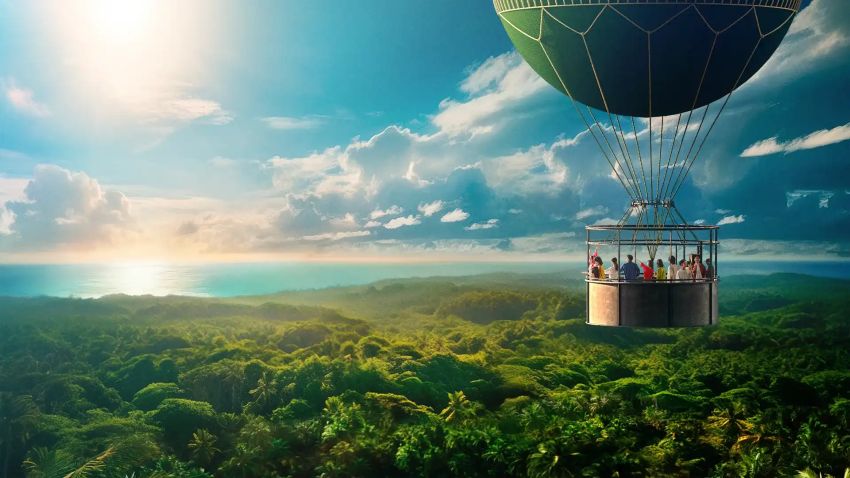Okinawa welcomed Junglia theme park on July 25, 2025, in Nakijin, presenting a unique blend of thrilling attractions and luxurious amenities that promises to captivate visitors. However, its innovative approach to tourism extends beyond entertainment, introducing a controversial tiered pricing structure that charges foreign non-resident tourists more than domestic visitors, a policy sparking significant discussion within Japan’s evolving tourism sector.
Junglia stands out as a premier destination, masterfully combining lush, natural settings with dynamic entertainment experiences. The park evokes the spirit of a prehistoric world with its state-of-the-art animatronic dinosaurs, offering an immersive “Jurassic Park” style adventure without the ethical dilemmas of real cloned animals. This focus on adventure and unique outdoor activities positions Junglia as a distinct attraction for thrill-seekers.
Beyond its adventurous offerings, Junglia provides an unparalleled experience of luxury and relaxation. The park boasts opulent resort accommodations and an expansive infinity pool, officially recognized by Guinness World Records as the largest public infinity pool globally. Guests can also indulge in various spa amenities, complemented by vibrant dance performances and spectacular fireworks displays, making Junglia a comprehensive destination for both daytime excitement and nighttime allure.
A key aspect of Junglia’s strategy is its dedicated effort to welcome a global audience. The official website supports multiple languages, including English, Chinese, and Korean, facilitating seamless access and information for international travelers. This multilingual accessibility underscores the park’s commitment to attracting tourists from diverse backgrounds, reflecting its ambition to achieve universal appeal and connect with visitors seeking exceptional international travel experiences.
Despite its impressive offerings and international outreach, Junglia’s most debated feature is its admission fee policy. It has become publicly known that the park implements a differential pricing system, where foreign tourists who are not residents of Japan are subject to noticeably higher ticket prices compared to Japanese citizens and foreign residents. This distinction, based purely on residency status, has initiated conversations about fairness and pricing transparency in the Japanese tourism industry.
Specifically, adult admission for Japanese residents is ¥6,930, while foreign non-residents are charged ¥8,800 for the same access. Similarly, children’s tickets see a jump from ¥4,950 to ¥5,940. Junglia explicitly states that only foreign residents of Japan can avail themselves of the lower rates, provided they present valid proof of residency such as an Individual Number Card, driver’s license, or residence card. This meticulous verification process highlights the park’s strict adherence to its residency-based pricing model.
The strategic rationale behind this pricing disparity appears to be revenue optimization, particularly capitalizing on the current strength of foreign currencies against the Japanese yen. The approximate US$13 difference in adult ticket prices might not be perceived as substantial by international visitors, especially when considered as a minor component of their overall overseas travel budget. This approach allows Junglia to potentially boost its earnings from foreign visitors without impacting domestic spending patterns.
While tiered pricing based on residency or location exists elsewhere in Japan, often justified by factors like local government funding or efforts to manage over-tourism (e.g., Himeji Castle), Junglia’s case is distinct. The park has not cited increased maintenance costs or a need to prevent international scalping as reasons for the higher fees. Instead, this controversial travel pricing strategy seems to be a straightforward commercial decision aimed at enhancing the park’s profitability, a relatively novel practice within Japan’s theme park landscape.
The inauguration of Junglia theme park marks a significant moment for Okinawa tourism and the broader Japanese travel industry, blending adventure with luxury and introducing an unconventional pricing model. As Junglia emerges as a prominent destination for thrill-seekers and luxury travelers, the long-term response of both local and international visitors to its unique pricing policy will be a critical indicator of future trends in global tourism.






Leave a Reply